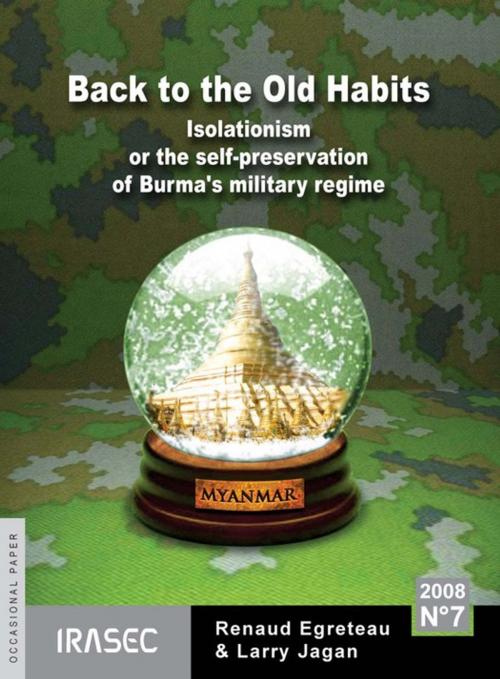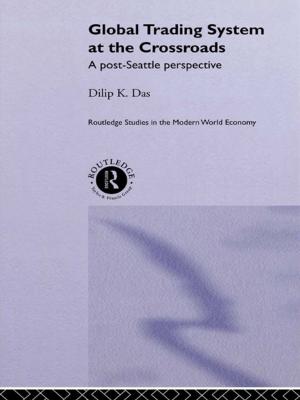Back to Old Habits
Isolationism or the Self-Preservation of Burma's Military Regime
Nonfiction, Social & Cultural Studies, Political Science, International| Author: | Renaud Egreteau, Larry Jagan | ISBN: | 9782956447061 |
| Publisher: | Institut de recherche sur l’Asie du Sud-Est contemporaine | Publication: | July 3, 2018 |
| Imprint: | Institut de recherche sur l’Asie du Sud-Est contemporaine | Language: | English |
| Author: | Renaud Egreteau, Larry Jagan |
| ISBN: | 9782956447061 |
| Publisher: | Institut de recherche sur l’Asie du Sud-Est contemporaine |
| Publication: | July 3, 2018 |
| Imprint: | Institut de recherche sur l’Asie du Sud-Est contemporaine |
| Language: | English |
This book argues that the Burmese military regime has always favoured an isolationist-type policy that finds its grassroots in Ne Win’s autarchic and xenophobic era as well as in Burma’s royal traditions, but without being completely cut off from the outside world. This policy approach is well suited to the Burmese authoritarian state which boasts an important strategic position in the region. In the past decade, the politics of “isolationism without isolation” has been skilfully developed by Burma’s military elite in order to preserve itself from both internal and external threats. Since the Depayin crackdown in May 2003, every step the Burmese junta has taken indicates that it has been consciously defining both its foreign policy and its internal political agenda according to these isolationist tendencies, as the recent fallbacks that followed the “Saffron Revolution” (September 2007) and the Cyclone Nargis (May 2008) illustrate. Not only does the military regime tend to strategically withdraw itself from the regional scene, by choosing only a few but crucial diplomatic and commercial partners like China, India, Singapore, Russia or Thailand, but it also gradually isolates itself from the rest of the Burmese society, by opting for a strategic and nationalist entrenchment which was perfectly highlighted by the purge of the pragmatic Military Intelligence Services (2004), the transfer of the capital to Naypyidaw (2005) and the strict control over the transitional process initiated by its own “Road Map towards a disciplined democracy” and undisrupted by the recent crises.
This book argues that the Burmese military regime has always favoured an isolationist-type policy that finds its grassroots in Ne Win’s autarchic and xenophobic era as well as in Burma’s royal traditions, but without being completely cut off from the outside world. This policy approach is well suited to the Burmese authoritarian state which boasts an important strategic position in the region. In the past decade, the politics of “isolationism without isolation” has been skilfully developed by Burma’s military elite in order to preserve itself from both internal and external threats. Since the Depayin crackdown in May 2003, every step the Burmese junta has taken indicates that it has been consciously defining both its foreign policy and its internal political agenda according to these isolationist tendencies, as the recent fallbacks that followed the “Saffron Revolution” (September 2007) and the Cyclone Nargis (May 2008) illustrate. Not only does the military regime tend to strategically withdraw itself from the regional scene, by choosing only a few but crucial diplomatic and commercial partners like China, India, Singapore, Russia or Thailand, but it also gradually isolates itself from the rest of the Burmese society, by opting for a strategic and nationalist entrenchment which was perfectly highlighted by the purge of the pragmatic Military Intelligence Services (2004), the transfer of the capital to Naypyidaw (2005) and the strict control over the transitional process initiated by its own “Road Map towards a disciplined democracy” and undisrupted by the recent crises.















